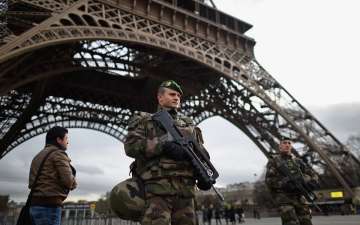Unsafe Europe: What repeated terror attacks tell us about their security preparedness
The ghastly Manchester terror attack that left 22 people dead and dozens others injured, has brought to fore how European nations are becoming increasingly unsafe.

The ghastly Manchester terror attack that left 22 people dead and dozens others injured, has brought to fore how European nations are becoming increasingly unsafe.
The wounds of Paris, Nice, Brussels and Berlin haven’t healed yet and this fresh attack only reaffirms the concerns about the security preparedness and the alertness of the existing security apparatus in these countries.
One does not need to look far back to realise how several major European cities have witnessed deadly terror attacks in the recent past.
In the year 2004 and 2005, Europe witnessed two big terror attacks in the big cities of Madrid and London respectively. Terrorists targeted trains in Madrid which claimed 192 lives and left more than 2000 people injured.
In London too, attackers targeted commuters, killing over 56 and injuring more than 700. Al-Qaeda claimed responsibility of these attacks citing the involvement of both countries in America’s war against terror.
These attacks came as a jolt to the otherwise peaceful nations and many steps were taken to secure the cities of Europe.

However, in 2015, France fell victim to possibly the first large scale attack by the Islamic State. A well-coordinated attack carried out by IS terrorists in several places of Paris left 130 people dead and more than 350 injured.
The Paris attacks, that took place November 13, however, did not come without a warning. On January 7, 2015, ten months before the attacks, Islamist terrorists attacked the office of Charlie Hebdo in Paris killing many.
Two attacks in the same year speaks volumes about the preparedness – or the lack thereof – of the French administration. And it became more evident eight months later.
On July 14, 2016, the French city of Nice witnessed another deadly attack when a cargo truck was deliberately driven into crowds celebrating Bastille Day on the Promenade des Anglais in Nice, resulting in the death of 86 people and injuring 434.
The attacks came not just as a shock but also as a warning for Europe of the network of Islamic terrorists rapidly spreading base across its countries. However, the realisation took a while to come and a price was paid.
Lack of preparedness in the neighbouring country of Belgium, which houses the European Union’s headquarters, came to fore barely four months after the Paris attack. On March 22, 2016, blasts shook the capital of Belgium when three coordinated suicide bombings – two at Brussels Airport in Zaventem, and one at Maelbeek metro station – in Brussels killed 35 and injured around 340 people.
One would assume that the countries would be taking their lessons – given the technology and the monetary status they command.
However, on December 19 in the same year, a truck was deliberately driven into the Christmas market next to the Kaiser Wilhelm Memorial Church at Breitscheidplatz in Berlin, leaving 12 people dead and 56 others injured.
The attacker was Anis Amri, a Tunisian who belonged to the Islamic state.
The series of well-coordinated attacks in Europe’s biggest cities and capitals throw up many similarities in the way these attacks were carried out. Still, the security agencies of European nations were unable to chalk out an effective plan to counter terrorism.
The inability of European nations to control and restrict these attacks becomes truly appalling when you contrast it with what the US and India did after the 9/11 and 26/11 attacks. While US acted indiscriminately against terror and terror suspects, India, with much lesser resources, took the lesson and tied up the loose ends to prevent any major attack thereafter.
What makes the situation ironic is that people from war torn nations are taking refuge in Europe hoping for a safe and secure life. These recent attacks, however, show how venerable this continent has become.
Sample that against the numerous advisories that countries from the western world issue when such kind of terror attacks happen in other parts of the world. Comments pour in warning their citizens about the imminent danger and threat in lesser developed countries hit by terror.
With the tables turned, is it not time that Asian countries also begin releasing similar advisories for citizens visiting an unsafe Europe?
